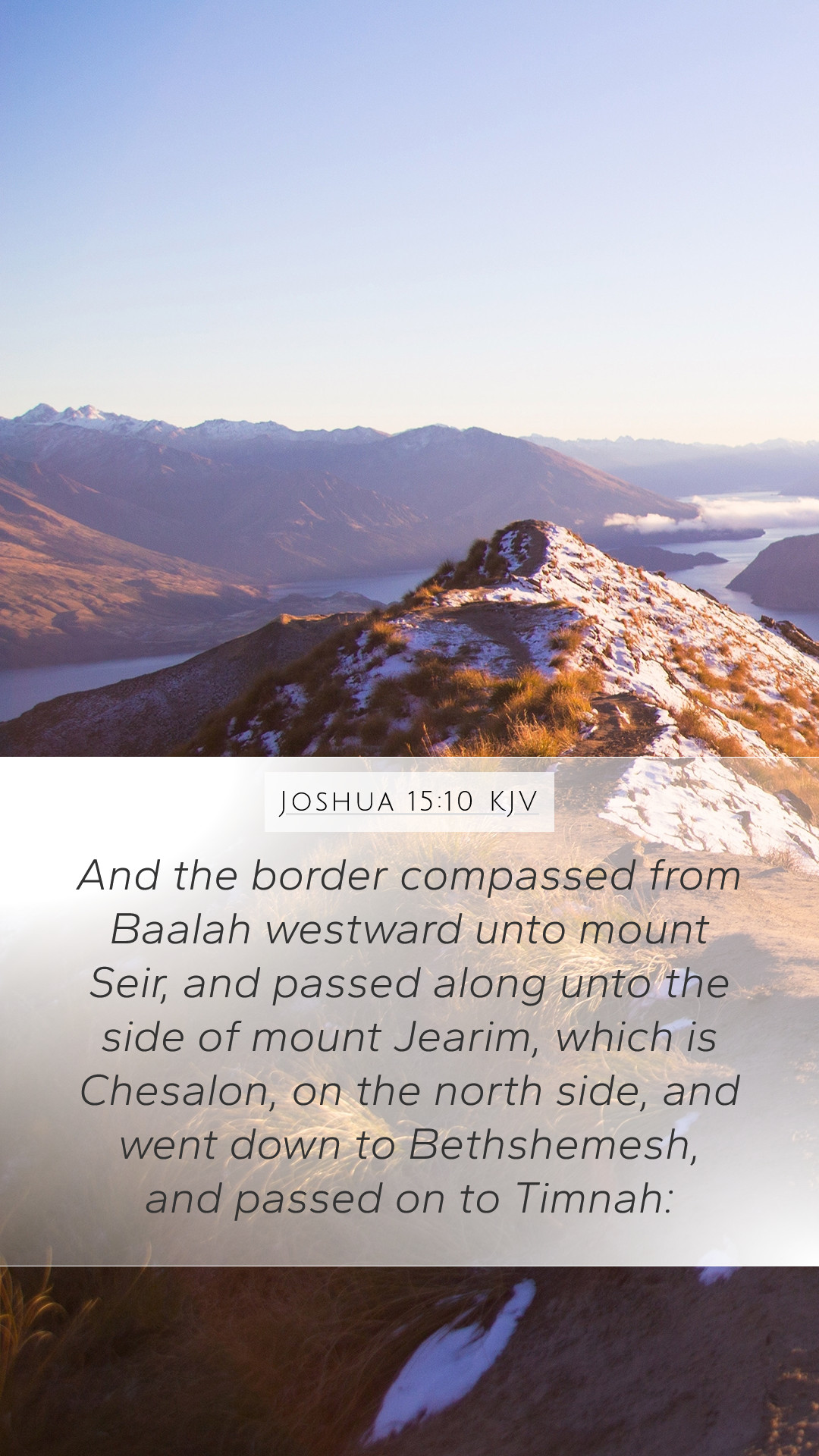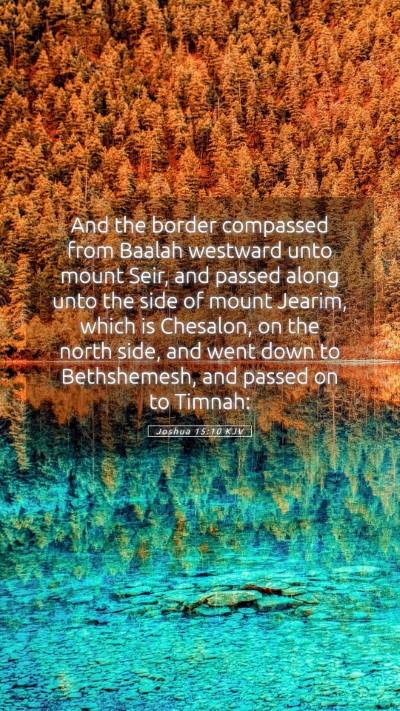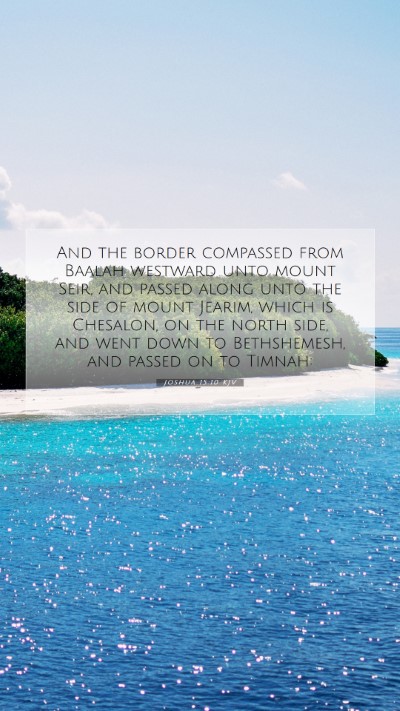Understanding Joshua 15:10
Bible Verse: Joshua 15:10 - "And the border went out toward the west, to the fountain of the water of Nephtoah: and the goings out thereof were at the well of Harrah."
In this verse, we analyze the geographical significance of the boundaries established by Joshua for the tribe of Judah. This marking of territory is not merely administrative; it carries profound spiritual and symbolic meaning rooted in the history and covenant of Israel.
Overview of Commentary Insights
The verse highlights Judah's allotted territory, presenting key geographical landmarks that define its extent. This borders delineation not only signifies a physical space but serves as a representation of God's promises to His people.
Matthew Henry Commentary
Henry emphasizes the importance of geographical markers in understanding God's promises. He notes that the mention of the 'fountain of the water' signifies the provision of life and sustenance from God. The well marks the continuous favor and blessings bestowed upon Judah, indicating that territory is a divine grant rather than a human achievement.
Albert Barnes Commentary
Barnes elaborates that the cities and landmarks described serve to remind the Israelites of their heritage and the faithfulness of God. The water sources represent not only physical sustenance but the spiritual nourishment found in adherence to God’s covenant. Barnes sees these descriptions as essential for understanding Israel's identity and relationship with God.
Adam Clarke Commentary
Clarke draws attention to the historical context of the references. He highlights that the well of Harrah is a reminder of past events that influenced the shaping of Judah's boundary. Clarke suggests that studying these boundaries encourages believers to reflect on their spiritual boundaries and the importance of remaining within the guiding covenant of God.
Combined Insights
From the combined insights of these scholars, we can derive the following interpretations:
- Geographical Significance: The locations mentioned in the verse indicate the specific boundaries of Judah's inheritance, essential for the tribe's identity.
- Divine Provision: References to water sources symbolize God's provision and blessings, highlighting His role as the sustainer of life.
- Covenantal Relationship: The detailed boundary descriptions serve as a reminder of the covenantal relationship between God and His people, emphasizing the importance of faithfulness to God's commands.
- Historical Context: Understanding the historical significance behind these territories can enhance our grasp of God’s promises throughout history.
- Personal Application: This verse encourages believers to reflect on what it means to live within the boundaries set by God's Word, prompting a discussion on how these principles apply to daily living.
Additional Bible Cross References
- Genesis 49:10 - The prophecy regarding Judah's royal lineage.
- Joshua 14:14 - Caleb’s inheritance, linking the territory to God’s promises.
- Isaiah 11:10 - The root of Jesse will stand as a banner for the people.
Conclusion
The analysis of Joshua 15:10 reveals a rich tapestry of meaning—connecting geography with spiritual insights. In studying this verse, we find that understanding Scripture involves looking beyond the surface to appreciate the depth of God's promises and their implications for our lives today.
By engaging with this biblical text and its commentaries, we can enrich our Bible study experiences, whether in Bible study groups or individually through online Bible study resources.


